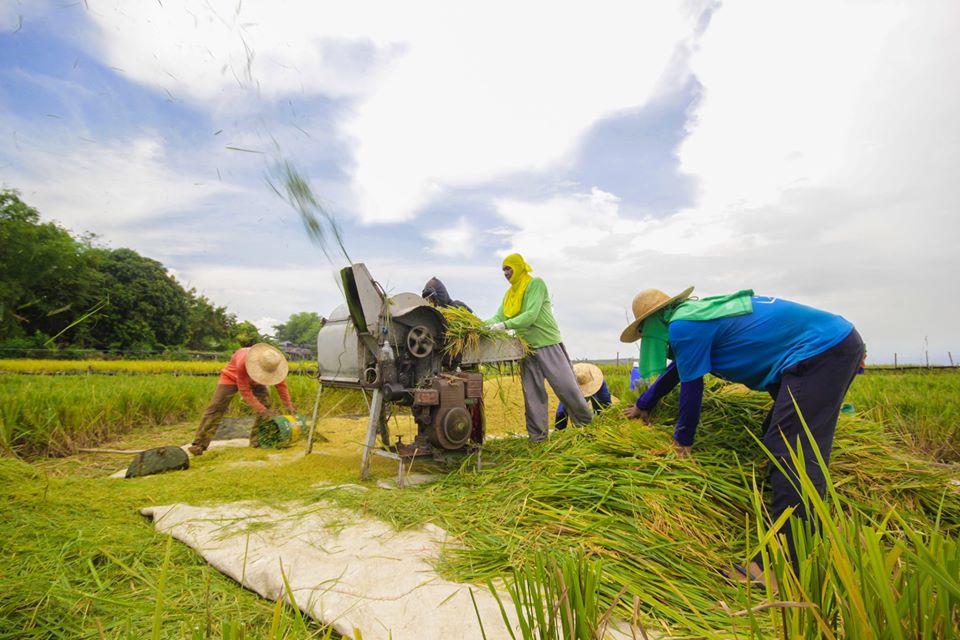News
Pushing financial literacy for farmers

The program, dubbed “Sulong Ang Pag-unlad ng mga Magsasaka/Magniniyog” (SAPM), aims to improve the farmers’ financial management skills and assist them in agricultural businesses, specifically coconut farming. (File photo:
Department of Agriculture – Philippines/Facebook)
MANILA — Local farmers in Mindanao will soon get free training on financial literacy from banking institutions.
The foundations of two financial institutions — the Landbank Countryside Development Foundation, Inc, (LCDFI) and UCPC-CIIF Foundation Inc., (Cocofoundation) on Thursday signed a memorandum of agreement (MOA) with the Bangsamoro Autonomous Region in Muslim Mindanao (BARMM) and the National Commission on Muslim Filipinos (NCMF) for the financial literacy programs to farmers in far-flung communities under the “poorest of the poor” category.
The program, dubbed “Sulong Ang Pag-unlad ng mga Magsasaka/Magniniyog” (SAPM), aims to improve the farmers’ financial management skills and assist them in agricultural businesses, specifically coconut farming.
Both the LCDFI and Cocofoundation would provide farmers with financial learning, agricultural training, and developmental interventions to improve their business performance and farming operations.
LCDFI executive director Rey Oscillada said the financial literacy program targets 218 unbanked municipalities nationwide, noting that Bangsamoro Autonomous Region in Muslim Mindanao (BARMM) has the most numbers of municipalities that have no financial institutions.
“A series of training will be conducted by our partnered state, universities and colleges (SUCs), we will be tapping experts in financial education to teach the farmers on financing activities using our crafted financial modules. SUCs will provide the training within the municipalities,” he said, noting that the training would be localized through a community-based approach.
After the training, farmers will be included in the “onboarding system” of the Landbank Foundation, he said.
“The farmers’ progress will be observed (so) that their needs will also be monitored,” he added.
Under the MOA, the LCDFI provides the borrowing cooperatives the technical capability enhancement training to sustain product-marketing requirements.
Noting that farmers should also learn how to manage the risks in the agri-business industry, Oscillada said they would be provided with appropriate training modules that are localized and community-based.
“They (local farmers) need to understand how to handle, their money well, how to grow and keep their savings,” Oscillada said.
The program’s goal is to teach the farmers to produce more so that they would earn more.
“Financial literacy is the first step towards helping our poor farmers (so) that our farmers can help themselves create an economic activity—even in the poorest areas—(so) that they can be contributors to the general economy of the country,” Oscillada said.
Once farmers learn how to handle their own business funds responsibly, they would contribute to the country’s economic activity, even in the far-flung community, he said.
“If their livelihood will be boosted, then they will no longer rely on the government, instead they can partake on the growing economy of the Philippines,” he said.
Cocofoundation president Rehan Balt Lao said the Philippines is the second-largest producer and exporter of coconuts in the world—which means there’s a need to boost the coconut industry here if the country is targeting to replace Indonesia on the top.
“As of now, we are the number 2 coconut producer in the world, but we have yet to maximize the coconut industry here. We still have to boost and develop our capacities in coconut farming,” he said.
Cocofoundation will provide financial loans to identified coconut farmer associations and cooperative.
“The newly organized associations and cooperatives will be under our jurisdiction; we will be providing them, professional managers. The Cocofoundation will supervise the operation of the coops to oversee their improvements and assess their needs,” Lao said.
The same program was implemented in the 1990s that contributed to the success of several cooperatives, he said.
“We have done this before. We have seen the success of the previous cooperatives, some of these cooperatives are now millionaires—that’s the reason why we revived the UCPB program and strengthen its components through partnering with the Landbank Foundation,” he said.
Coconut farming in BARMM
Lao said the BARMM has many potentials in the coconut industry, making it more conducive for the country to develop a larger coconut plantation in the area.
“We have seen on the records that the BARMM has not yet been receiving any programs from UCPB,” he said.
The region has many potential coconut farmers that need assistance in enhancing their livelihood and proper marketing support of their products.
The program will introduce to the local farmers several coconut products that are already in the market, which are ready for export “(so) that they will learn how to put value in their coconut harvests”, Lao said.
Lao said one of the reasons for choosing BARMM as a pilot area for the SAPM program was to counter extremism in some areas.
Instead of joining radical groups, farmers should focus on organizing cooperatives and associations to boost economic activity in the area.
“This is part of countering violent extremism in the BARMM areas. Once they are already organized into cooperatives or formed into association—there’s no reason for them to enter terrorism and it will boost the economic activity in the areas, making a stable livelihood activity for the farmers,” he said.
NCMF-Lanao regional director Lominog Lao said the signing of the agreement between the government and the lending institutions would help return to normal the lives of families affected by the Marawi Siege in 2017.
The NCMF is tasked to identify the potential beneficiaries of the SAPM program.
Lanao del Sur 1st District Board Member Abdul Hamid Umpa Amer Bitor said the program would inspire the farmers to be more resilient in facing challenges.





















